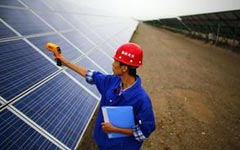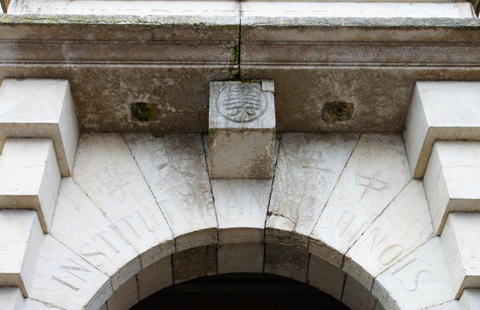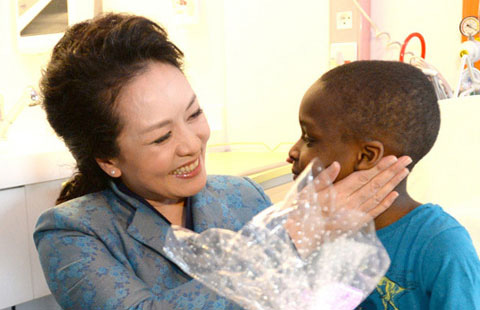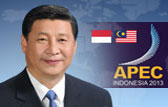Xi prepares to clinch deals on European trip
Updated: 2014-03-22 00:47
By ZHOU WA (China Daily)
Comments Print Mail Large Medium SmallCooperation agreements will pave the way for future ties, experts say
President Xi Jinping is expected to sign several cooperation agreements on manufacturing, finance, energy and cultural exchanges during his upcoming tour of Europe that experts say will set the tone for future ties.
Xi begins his trip on Saturday, his first visit to Western Europe since taking office in March last year.
|
 |
Europe is also his first overseas destination since the close of the nation’s annual two sessions, at which members of China’s top legislative and advisory bodies discuss national-level policies.
Analysts said the visit shows the high degree of importance that China attaches to Europe and it will lay the groundwork for future ties.
The Netherlands is Xi’s first stop. It will be the first State visit by a Chinese president to the country since the nations established diplomatic ties in 1972. Xi is expected to sign cooperation agreements on agriculture, energy, finance and culture and is scheduled to meet with King Willem-Alexander and Prime Minister Mark Rutte.
Xi will also take part in the Nuclear Security Summit scheduled for Monday and Tuesday in The Hague.
He is expected to hold bilateral meetings with foreign leaders, including United States President Barack Obama, on the sidelines of the summit.
From the Netherlands, Xi will travel to France and visit the UNESCO headquarters.
He is also scheduled to meet his French counterpart Francois Hollande and Prime Minister Jean-Marc Ayrault. The leaders are due to sign agreements to boost Sino-French cooperation on energy, aerospace, urbanization, agriculture and finance.
It is the 50th anniversary this year of the two nations establishing diplomatic relations.
Vice-Foreign Minister Wang Chao, discussing Xi’s visit at a news conference, said, "France has always played a leading role in ties between China and Western countries".
Ding Chun, a professor of European studies at Fudan University, said, "Paris’ recognition of Beijing in 1964 not only shook up the world order imposed by the US and the Soviet Union during the Cold War but also was a breakthrough in building a multi-polar world."
Xi will then travel to Germany to meet President Joachim Gauck, Chancellor Angela Merkel and other leaders.
It will be the first visit to Germany by a Chinese president for eight years and Xi and German leaders will set the tone for Sino-German ties in the next five to 10 years.
Apart from Berlin, Xi will also visit Duesseldorf.
Leaders from the two sides will sign cooperation documents covering sectors including industry, aerospace, science and technology as well as culture and education.
Jia Xiudong, a researcher at the China Institute of International Studies, said that based on frequent mutual visits by high-ranking leaders from both China and Germany and constantly increasing bilateral trade, ties between the two nations "have kicked into high gear in the past decade".
"Economic ties will continue to be the engine for ties between Beijing and Berlin in the future," Jia added.
Xi will end his European visit in Belgium, where he will meet King Philippe, Prime Minister Elio Di Rupo and parliamentary officials and sign cooperation agreements covering trade, science and technology, and education.
In Belgium, Xi will also visit the European Union headquarters and set the direction for future Sino-EU relations when he meets President of the European Council Herman Van Rompuy, European Parliament President Martin Schulz and European Commission President Jose Manuel Barroso.
According to China’s official statistics, bilateral trade between the country and the EU reached $559 billion in 2013. The EU has been China’s largest trade partner for 10 years and China has been the 28-member bloc’s second-largest trade partner for 11 years.
Zhao Junjie, a researcher of European studies at the Chinese Academy of Social Sciences, said: "The development of China-Europe ties has shown favorable momentum. This visit will inject new energy to the long-term stable development of these ties."
In November, China and the EU launched negotiations on an unprecedented bilateral investment treaty during the 16th China-EU Summit. Zhao said the start of talks on the treaty represented an important and positive change of approach to bilateral relations. The treaty will offer a good opportunity for China to attain international standards in trading and investment and to become more involved in the global economy.
Chen Mingming, former Chinese ambassador to Sweden, told China Daily, "The treaty can contribute to avoiding trading disputes and protectionism."
China and the EU have clashed over trade issues, principally over EU accusations in the first half of 2013 that Chinese companies were selling solar panels in the bloc below cost.
Zhao said leaders from both sides should show more respect and tolerance of each other’s differences and develop a cooperation mechanism.








